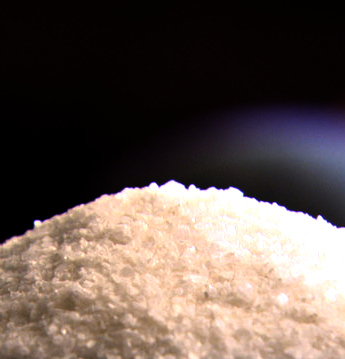Ketamine controls could bring pain
 International governments are trying to place heavier controls on ketamine, but anaesthetists are fighting to keep it free.
International governments are trying to place heavier controls on ketamine, but anaesthetists are fighting to keep it free.
The World Federation of Societies of Anaesthesiologists (WFSA) is calling for global support for its initiative to protect ketamine’s status as an essential medicine for anaesthesia and pain relief, in the face of efforts by China and other countries - which have a problem with ketamine abuse - to have the drug included on the United Nations schedule for controlled drugs.
“Ketamine is an essential anaesthetic and painkiller, especially in countries with limited options and poor storage facilities in their hospitals,” according to Dr Jannicke Mellin-Olsen, one of two newly elected WFSA Presidents.
Ketamine is the only safe anaesthetic available in many parts of the world, and is widely used for both adults and children.
It is also easily transported in situations such as disasters, in which vital lifesaving surgery can take place at the scene of the disaster, even outside the hospital.
Médecins Sans Frontières says that its doctors use ketamine as anaesthetic and or pain relief in 90 per cent of the Caesarean sections they do, and 95 per cent of trauma surgeries.
China and some other southeast Asian countries including Thailand have problems with ketamine abuse in the general population, and are thus calling for access to be restricted in the same way that morphine is a scheduled or controlled substance.
The UN’s Commission on Narcotic Drugs (CND) has not made any changes yet, but there is growing concern that it is looking to debate the matter at future meetings.
Medical experts stress that when morphine was restricted by the CND, there were promises that it would continue to be available for medicinal and scientific purposes.
But what actually happened is that today, 80 per cent of morphine is used in just 6 high-income countries, whereas low- and middle-income countries use just 6 per cent of the world supply, despite containing 80 per cent of the global population.
Being on the restricted list creates a conflict since it leaves countries with dual responsibilities to promote, yet restrict the same drug, with no guidance on what balance is appropriate or effective.
Each time is has been called to, the World Health Organisation ‒ after looking at the evidence of abuse, public health impact, medical use, and other factors ‒ has repeatedly has warned that placing ketamine under international control would devastate access to safe surgery for billions of people.
Despite this, in 2014, Thailand put forward a non-binding resolution calling on countries to voluntarily pursue national scheduling of ketamine. This resolution was passed, and later that year, China pursued formal scheduling of ketamine at the UN. China has backed down twice, in 2015 and 2016 (when the CND did not include it on the agenda for consideration).
It is considered very likely they will keep returning to the issue.
“Ketamine’s unique safety profile and effectiveness make it irreplaceable in anaesthetic practice,” says Associate Professor Philip Peyton, head of research at the Department of Anaesthesia at Austin Health Melbourne.
“However, concerns about ketamine’s recreational abuse have prompted international calls for its withdrawal.
“This comes at an unfortunate time, as there is increasing interest in ketamine’s other potential therapeutic effects on chronic pain and postoperative delirium, which are now recognised as common and serious postoperative complications, as well as a possible emerging role in management of severe treatment-resistant depression.
“Its unique value in the management of severe pain after surgery or trauma is now widely appreciated.
“Much research still needs to be done to properly define the value of ketamine and its importance in clinical practice before any decisions about the future availability are made.”








 Print
Print